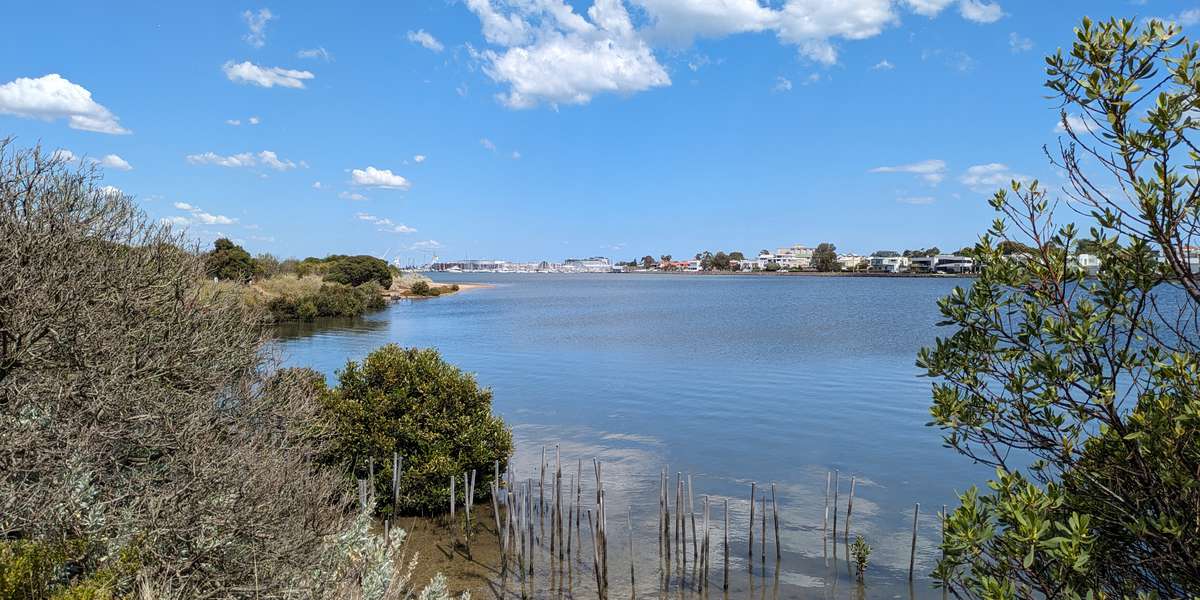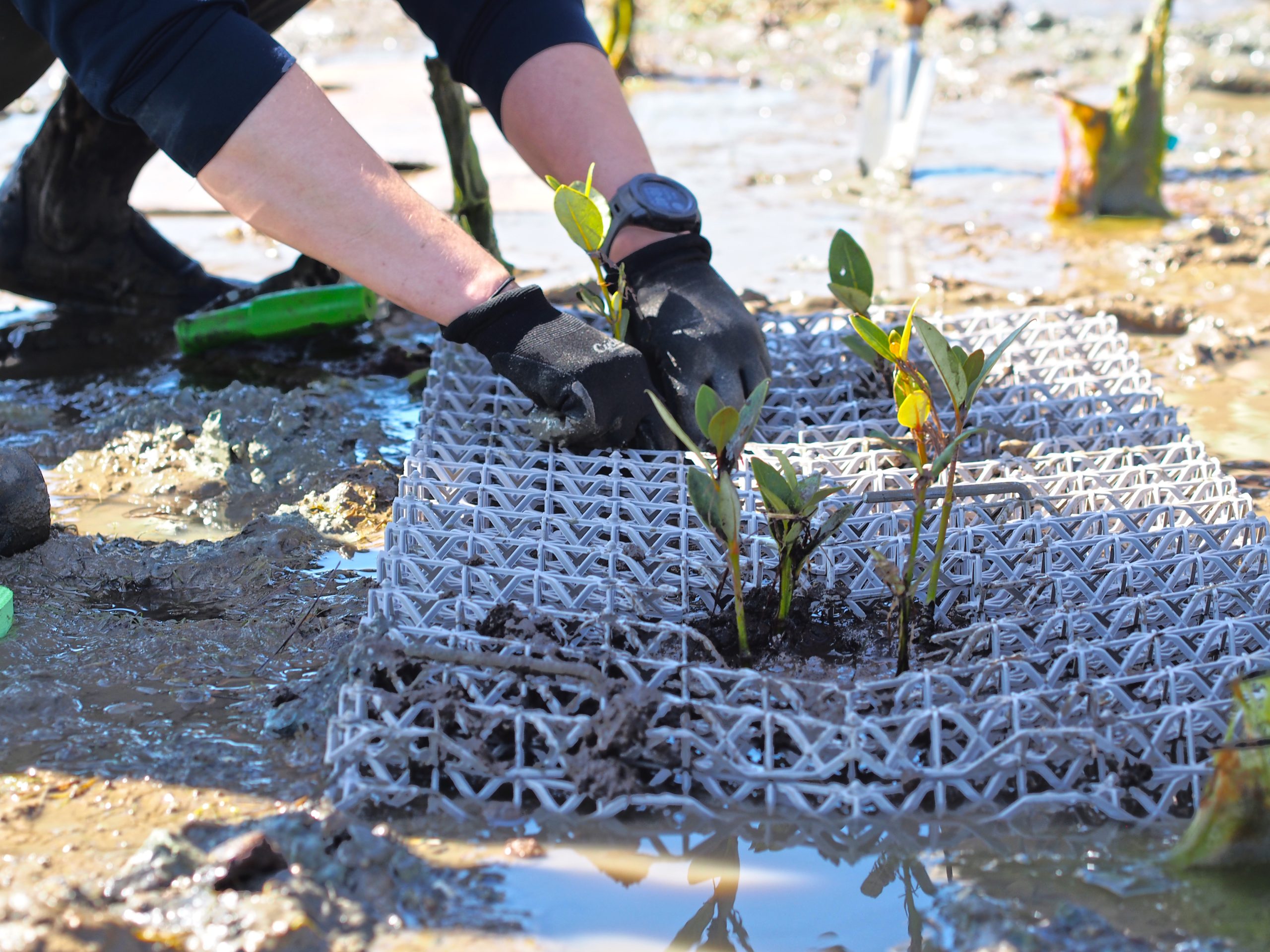2024
2025
February 11, 2024 at 3:18 PM

Sandy Point wetland revegetation
Managed by Blue Carbon Lab - Deakin University
Since 2024
In Victoria, AU
DEA103
This chronolog combines 103 photos from 78 contributors. Learn more
About this site

Coastal wetlands, which include seagrass meadows, mangrove forests, saltmarshes and supratidal forests, are incredibly valuable for human and ecosystem health.
When these habitats are lost, it can be difficult for vegetation to return, because the environmental conditions of the area may have changed and are no longer suitable for new plants to grow. To facilitate the return of coastal wetland species, sometimes a more active approach to restoration is needed.
The Regenerating Our Coast program with our community partners is trialling one such active restoration method. We are using biodegradable structures made of potato starch to help stabilise the soil and provide a sturdy foundation for plants to establish. We hope to see the wetland plant seeds and seedlings grow and flourish over time, while the structures will degrade into organic components so that they do not remain in the environment when they are no longer needed.
At Sandy Point, we have planted the threatened grey mangrove, Avicennia marina, within and without the structures to test the efficacy of our method. We also planted mangrove seedlings in single and clustered formations to see if this affects survival.
Ultimately restoration coastal wetlands will enhance the vital services they provide, including supporting biodiversity, filtering pollutants, sequestering and storing atmospheric carbon dioxide (called Blue Carbon) and protecting our coastlines from erosion and storms.
Regenerating Our Coasts is supported by Beach Energy.
About Blue Carbon Lab - Deakin University
Deakin University’s Blue Carbon Lab offers innovative research solutions for helping to mitigate climate change and improve natural capital, while also contributing to jobs, economic growth, capacity building and community wellbeing.
The Blue Carbon Labs’ in-house expertise spans ecology, biogeochemistry, microbiology, environmental economics, modeling and mapping/remote sensing.
For nature-lovers
Explore chronologs
For organizations
Chronolog is a monitoring tool for parks, nature centers, wildlife organizations, schools, and museums worldwide. With over 100,000 contributors across 300 organizations, Chronolog is on a mission to engage communities with nature while recording important natural changes.
© Chronolog 2025 | Terms